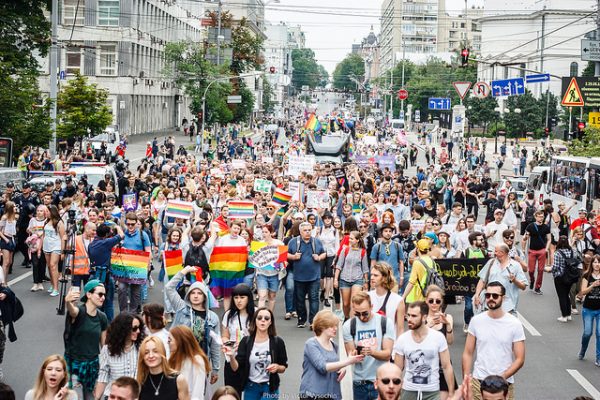
Originally published October 10, 2018
At the international level, the advancement of sexual minorities’ rights often result from advocacy by broad international human rights groups, like Amnesty International, or from international organizations specializing in LGBT issues. In a recent study, Kristopher Velasco investigated which of these two types of organizations is more effective at influencing the national adoption of progressive LGBT policies.
To measure the success of LGBT causes at the national level, Velasco created a LGBT Policy Index of national laws that impact people with different sexual orientations, gender identities, or who engage in same-gender sexual practices. The Index is higher in countries that have enacted bans on employment discrimination, established hate-crimes protections, or legalized same-sex unions. Velasco then gathered data from 156 countries for the period between 1991 and 2015 . The study compares the relationship between the Index and the global emergence of human rights international organizations and LGBT international organizations, as well as the overall effect of the mounting global support for LGBT rights.
Velasco finds that the LGBT Policy Index has dramatically risen since 1990. For example, bans on employment discrimination increased from less than 1% of countries in 1991 to over 32% in 2015. Velasco also finds that the emergence of national LGBT policies is significantly associated with the global emergence of organizations specifically concerned with LGBT rights, and it was not significantly associated with the presence of broader international human rights organizations. In addition, the positive effect of LGBT international organizations increases when considering the mounting support for LGBT rights in the global context. For instance, as the United Nations expresses growing concern to sexual orientation and gender identity, political leaders are more likely to adopt progressive LGBT policies.
In short, globalization and mobilization of international organizations — especially those concerned with particular issues — play a key role in whether nations adopt LGBT-friendly policies.

Comments